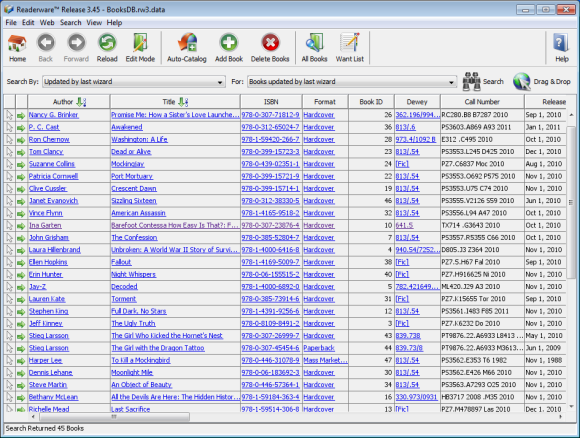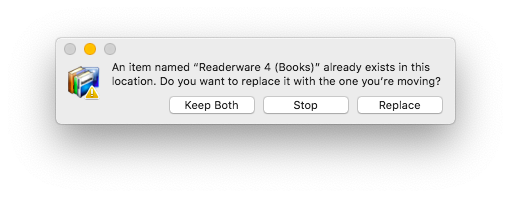
So, if you’re a collector and you have a leaning to Linux, then Tellico is a great tool to keep track of your collection. In an organisation, you will not be able to work on Tellico data concurrently with other users. Finally, Tellico only runs on a single system as a standalone application. Unless for each book you create a massive set of fields and accept that your application is a bit of a hack from a sales point of view. You can’t store related information like supplier information, or invoicing data etc. While fantastic for the average collector, it is non-relational in the sense that ultimately it is a really fancy frontend to a single flat database table. Another big downside to it is that ultimately as an application it is of little use to booksellers. So use of Tellico, at least in the rare book world, is limited to an exceedingly small user base. This isn’t that much of a problem, but I don’t really know that many rare book fiends that are also Linux geeks. So, I’ve raved on about Tellico for a while now, but what about the real downsides? If this stuff is free, why isn’t everybody using it? To begin with, and most pertinently, Tellico only runs on Linux and is a KDE application, which means that it requires the KDE library files to run. In fact, I’m 100% sure that any extra development work would be welcomed by the whole open source community.
#READERWARE BOOKS CODE#
Nonetheless, if you’re a fully-fledged coding guru, Tellico is open-source and you could merrily modify the import/export code to fit your needs. That said, the CSV export does not allow you to custom tailor which fields are exported and in which order. Nonetheless, you are able to add your own data sources in Tellico’s settings, so if you know of a library source that provides z39.50 access (such as COPAC) or SRU access, you might find that you can extend Tellico to cover more of the rare book world than you expect.Īnother top feature worth mentioning about Tellico is that it supports a huge range of import and export options. From a rare book collector’s point of view, this feature is less useful. For modern book collectors, this can help your cataloguing massively, and is a real time saver.
#READERWARE BOOKS DOWNLOAD#
Tellico also allows you to access and download data about your books from external data sources, such as Amazon or the Library of Congress. The book entry forms allow you to store an image of the front cover, but if you want to include further images, its easy enough to add a field, thereby modifying the form layout. On the whole, Tellico is well documented and pretty easy to use.

Which can be pretty useful if a default view doesn’t match your requirements. So its pretty extensive out of the box, however unlike many other applications built for this purpose, Tellico allows you to create your own fields and forms and reports.

By default, fields and views are already defined for collections of books, bibliographic entries, videos, music, video games, comic books, coins, stamps, trading cards, wines, and file catalogues. Tellico is not just a book cataloguing application, it is useful for organising any particular collection that you might want to catalogue. That said, Linux as a whole is quite similar, so this does not mean that you’re getting a second rate program just because it doesn’t cost you anything. The first thing to keep in mind about this application is that it is really a labour of love, and as such is non-commercial. In fairness, I have only looked extensively at one of these programs, but I will certainly be willing to chat a bit about each of them and at some stage I will look more extensively at Readerware to balance out any comments that I make now. The two applications in question are Tellico and Readerware.

One of my reader’s recently requested my comments on two linux applications that are used for book cataloguing. Septemat 11:09 am rarebookblog 10 comments

Tellico and Readerware… Linux based book cataloguing software


 0 kommentar(er)
0 kommentar(er)
